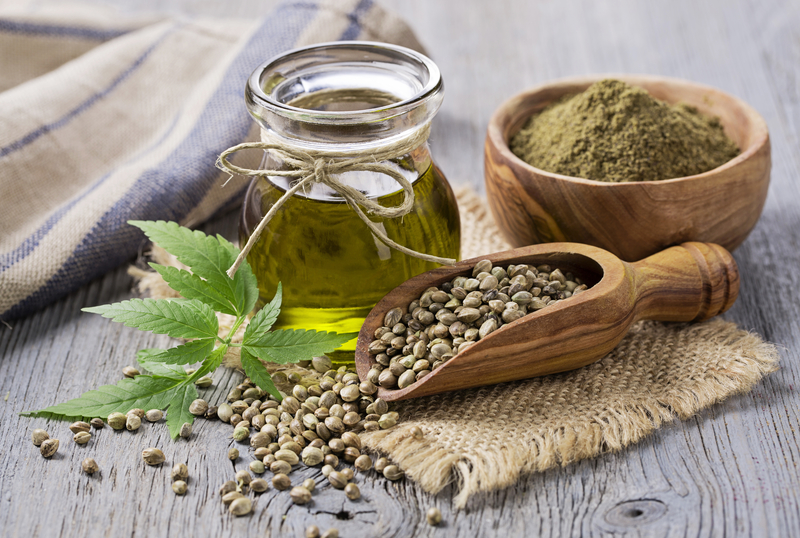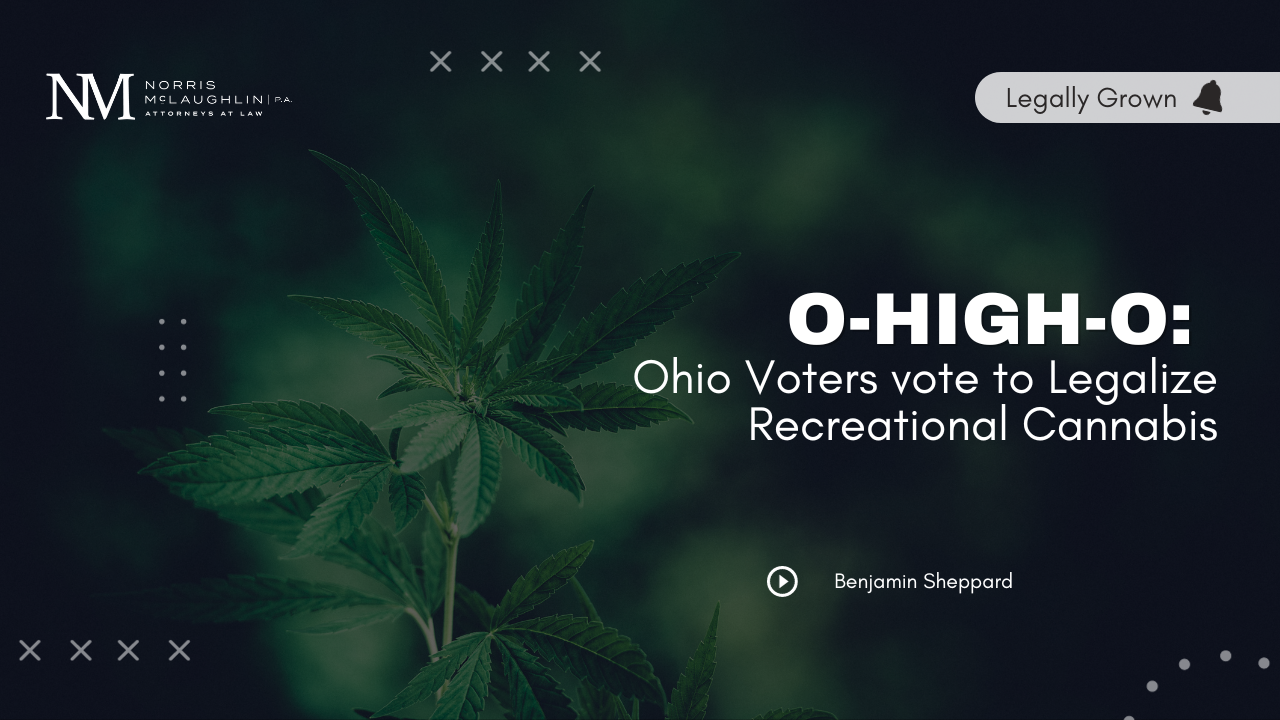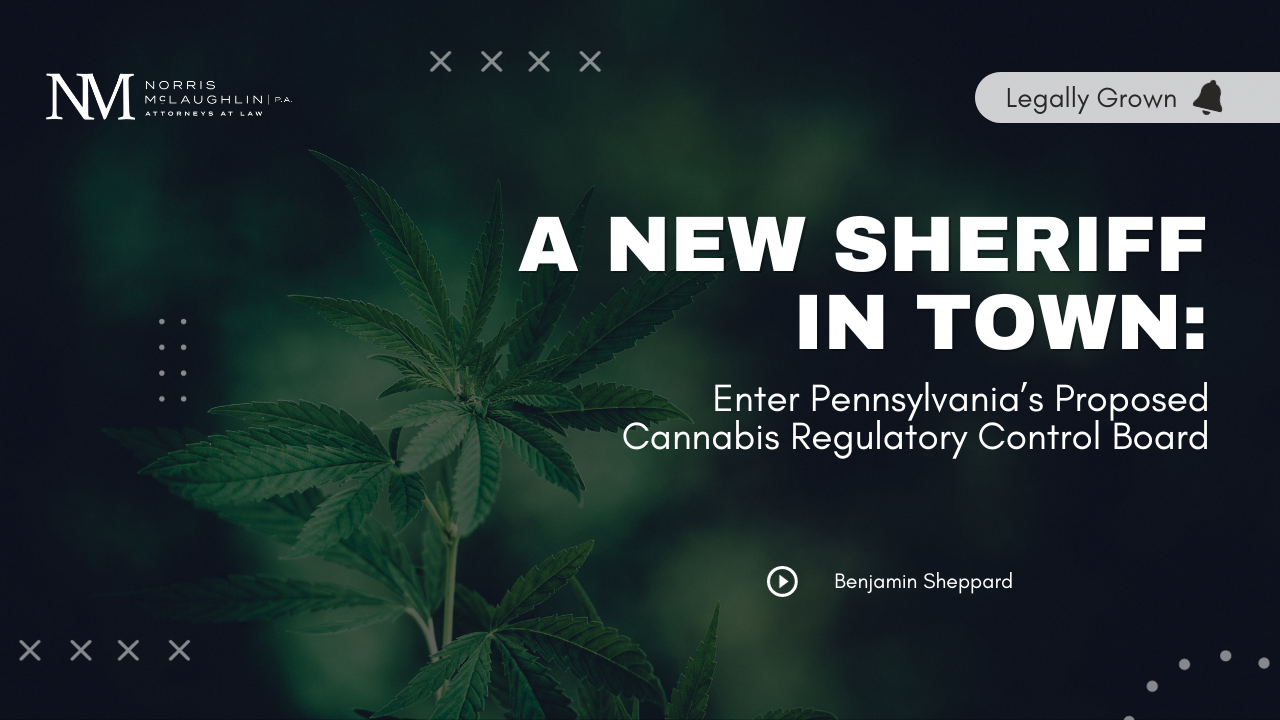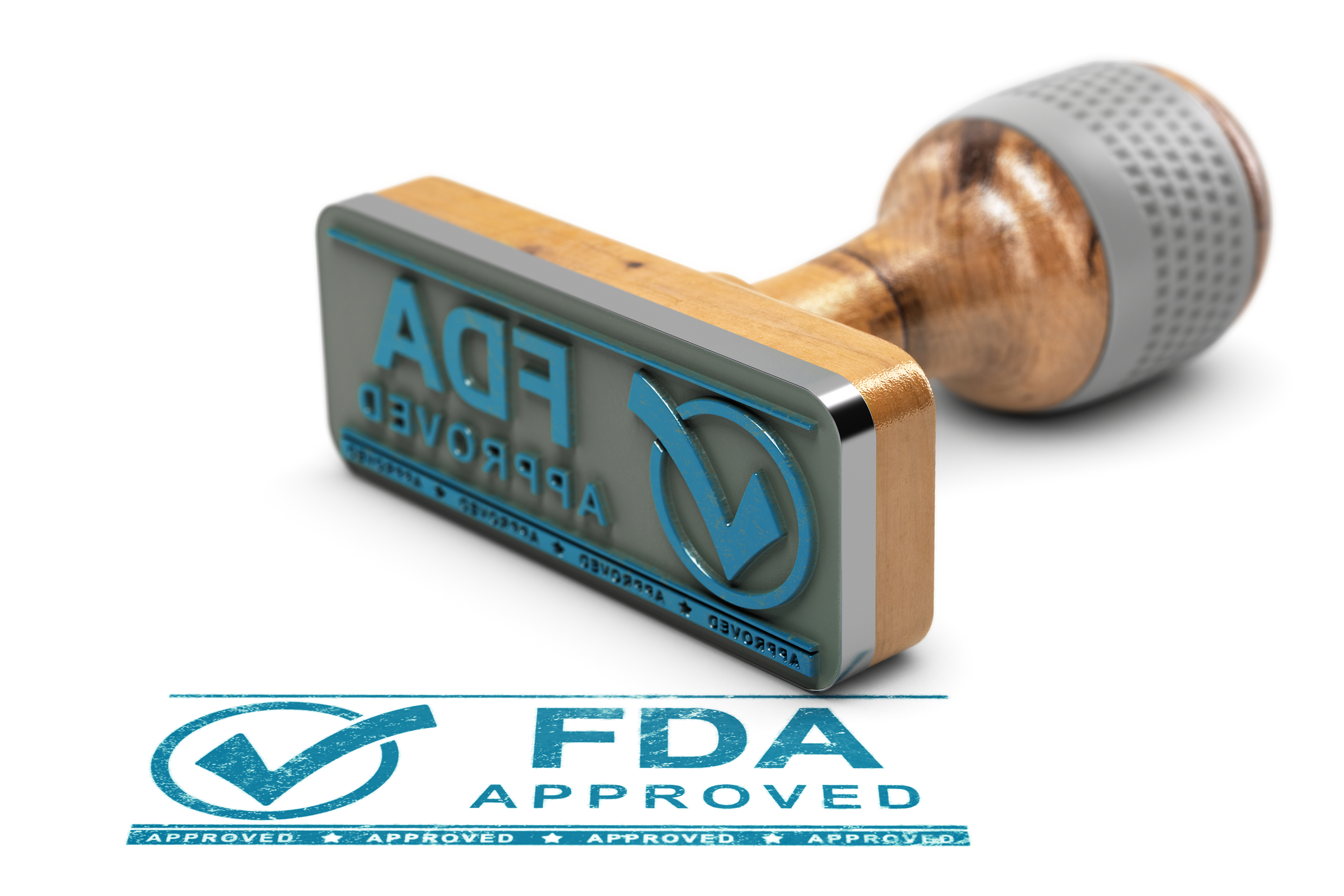New Jersey Clears Way for Hemp Farming

On Friday, August 9, 2019, Governor Murphy signed the New Jersey Hemp Farming Act (the “Hemp Farming Act”) into law, paving the way for hemp farming in the Garden State. Although New Jersey previously enacted an Industrial Hemp Pilot Program, that legislation was essentially mooted by the federal 2018 Farm Bill. The Hemp Farming Act repeals and replaces the previous Industrial Hemp Pilot Program, and will be a permanent piece of legislation rather than a mere pilot program. The explicit purpose of the Hemp Farming Act is to “promote the expansion of the State’s hemp industry to the maximum extent permitted by federal law,” among other things.
Consistent with the 2018 Farm Bill, the Hemp Farming Act states that it is lawful to possess, transport, sell, and purchase legally-produced hemp products in the state. But wait… there's a catch. Don’t go planting hemp seeds in your garden! Although possession of “hemp products”[1] is now clearly legal in New Jersey, the Hemp Farming Act specifically states that it is unlawful for someone who is not a “hemp producer” or an “agent of a hemp producer” to “cultivate, handle, or process living hemp plants or viable seeds, leaf materials, or floral materials derived from hemp.” Unfortunately for hobbyist gardeners, the term “hemp producer,” for the purposes of the law, means “a person or business entity authorized by the [New Jersey Department of Agriculture] to cultivate, handle, or process hemp…” A non-hemp producer who engages in the foregoing conduct will be subject to the same penalties as those related to marijuana.
So how does one become a “hemp producer”? That question is not so easy to answer, at least not yet. First, the New Jersey department of agriculture must draft and adopt regulations governing the implementation of the Hemp Farming Act. These regulations will govern, in detail, procedures relating to the planting, cultivation, processing, testing , registration, and compliance with law. Although these rules and regulations are supposed take effect immediately as interim rules, they will eventually need to be approved by the U.S. Department of Agriculture to ensure that they are consistent with the 2018 Farm Bill. The U.S. Department of Agriculture has not yet promulgated the requisite regulatory guidelines, though they hopefully will be published in the fall of 2019.
The Hemp Farming Act also provides that the New Jersey Department of Agriculture must establish rules and regulations governing the application process to become a “hemp producer” and rules and regulations for violations of the Hemp Farming Act. Any person or business seeking to become a “hemp producer” should consult with competent legal counsel, and possibly other consultants, to ensure that the application process goes smoothly and to ensure compliance with applicable law.
Additionally, the Hemp Farming Act provides that derivatives of hemp, including CBD, may be added to cosmetics, personal care products, and products intended for human or animal consumption to the maximum extent permitted by federal law. This is important as the FDA weighs its treatment of CBD, yet New York City has begun cracking down on CBD-infused foods and beverages.
We here at Norris McLaughlin continue to monitor this important area of law, which represents tremendous opportunity for growth in New Jersey agriculture, and will keep you apprised of any new developments. If you have any questions, please feel free to contact me at (908) 252-4236 or Ealvarez@norris-law.com.
[1] The term “Hemp Products” is broadly defined by the New Jersey Hemp Farming Act as “a finished product with a delta-9 16 tetrahydrocannabinol concentration of not more than 0.3 percent 17 that is derived from or made by processing a hemp plant or plant 18 part and prepared in a form available for commercial sale. The term 19 includes cosmetics, personal care products, food intended for 20 human or animal consumption, cloth, cordage, fiber, fuel, paint, 21 paper, particleboard, plastics, and any product containing one or 22 more hemp-derived cannabinoids such as cannabidiol. Hemp 23 products shall not be considered controlled substances.”



